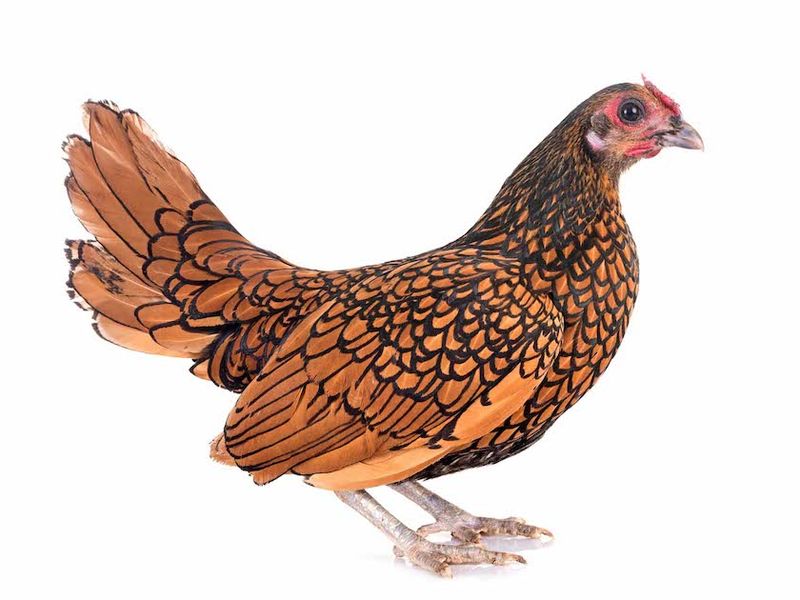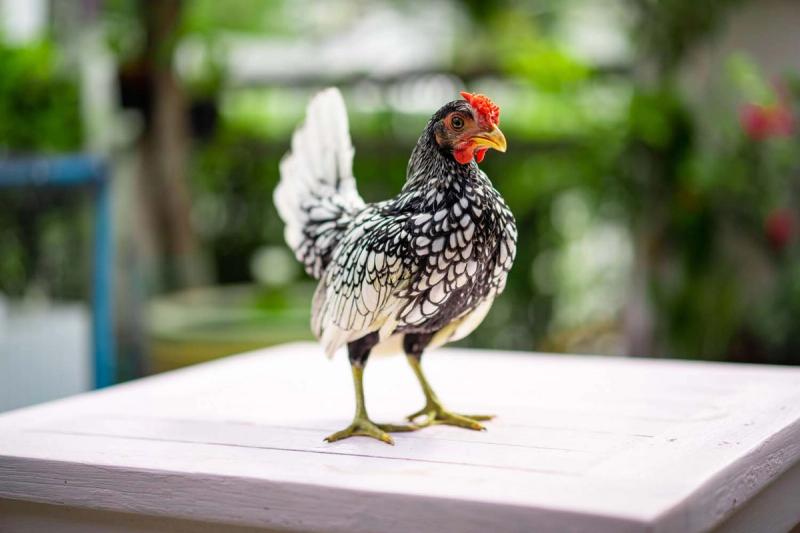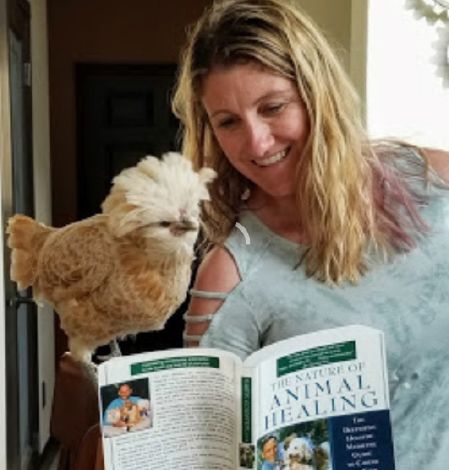Small Size, but Personality Plus!


Sebright chickens will keep you on your toes
If you are looking to add a bird to your flock that will turn heads, get yourself a Sebright. These dynamic and unique chickens are certainly deserving of a double take. They are lively, pint-sized conversation pieces that will keep you on your toes without taking up too much space.
About the breed
Sebrights were named after Englishman Sir John Sebright in the early 1800’s; besides holding the impressive title of the 7th Baronet of Besford, Worcestershire, and a Member of Parliament for Herefordshire, he was also a farmer raising chickens, cattle, and pigeons…and a writer.
His writings about farm animal breeding and husbandry actually inspired Charles Darwin’s inception of “The Origin of Species”.
Sir John Sebright set out to breed a bantam bird with unique and defined “lacing” on the feathers. He travelled far and wide collecting a variety of odd, gamey birds. The exact lineage of Sebrights are unknown; but he finally bred the first, true bantam with lacing in 1810.
Not the usual appearance
There are two accepted colors for Sebrights: gold laced and silver laced. Breeders in Holland have thrown other colors like white-laced buff, citron and even a pure white (called an Eikenburger), but these are not recognized as the standard.

The lacing is sharp and well-defined, giving each feather a highlighted effect. The feathers themselves are not pointed but rather almond-shaped. Males of these breed are “hen-feathered,” meaning they do not have the hackle or sickle feathers that typically denotes their gender.
The most unique aspect of this chicken is how they carry themselves.
The body is short and compact with a prominent chest and the back is short with a square tail that sits at a high 70 degree angle… giving these chickens a stature much like a pigeon. The wings are definitely unique; they are rather large and held at a downward angle almost touching the ground!
Being a bantam breed, these lovely chickens are quite small. Males weigh in at an average of 22 ounces, and females slightly less.
What a personality, though!
Sebrights are active, fiercely independent and (despite their small stature) are rather brave little birds. They are curious and adventurous and will investigate new terrain with vigor.
They are also rather skilled flyers… so a secure and tall fence is required to keep these explorers safely contained. These birds can also be rather chatty, owners say.
These birds tend to keep to themselves but certainly enjoy the company of their human family.

They are not as clingy as some breeds, but will still follow people around hoping for an occasional treat. Just don’t expect a lap bird…these pets are far too active to sit still for too long.
Sebrights are not broody birds.
They much prefer to scout the yard for tasty morsels than sit on a nest all day!
Caution: care required
Unfortunately, this breed can come with a far amount of health issues. Marek’s is the most common, and most deadly, disease for Sebrights. Be sure to vaccinate to avoid an outbreak.
Given that these hens are rather absent mothers, any fertilized egg will need to be carefully monitored in an incubator or with a broody hen; even then, the chicks have a very high mortality rate. To make breeding even more difficult, many males are born infertile or with low fertility.
This combo of negligent brooding, high mortality and infertility have made Sebrights a “threatened” breed.
Sebrights are not the most prolific layers…and I mean that. The only lay 60-80 small, creamy white eggs a year! These birds are meant for ornamental or show duty, not to sustain a farm.
Tags:Chicken Chatter

Acreage Life is part of the Catalyst Communications Network publication family.
















